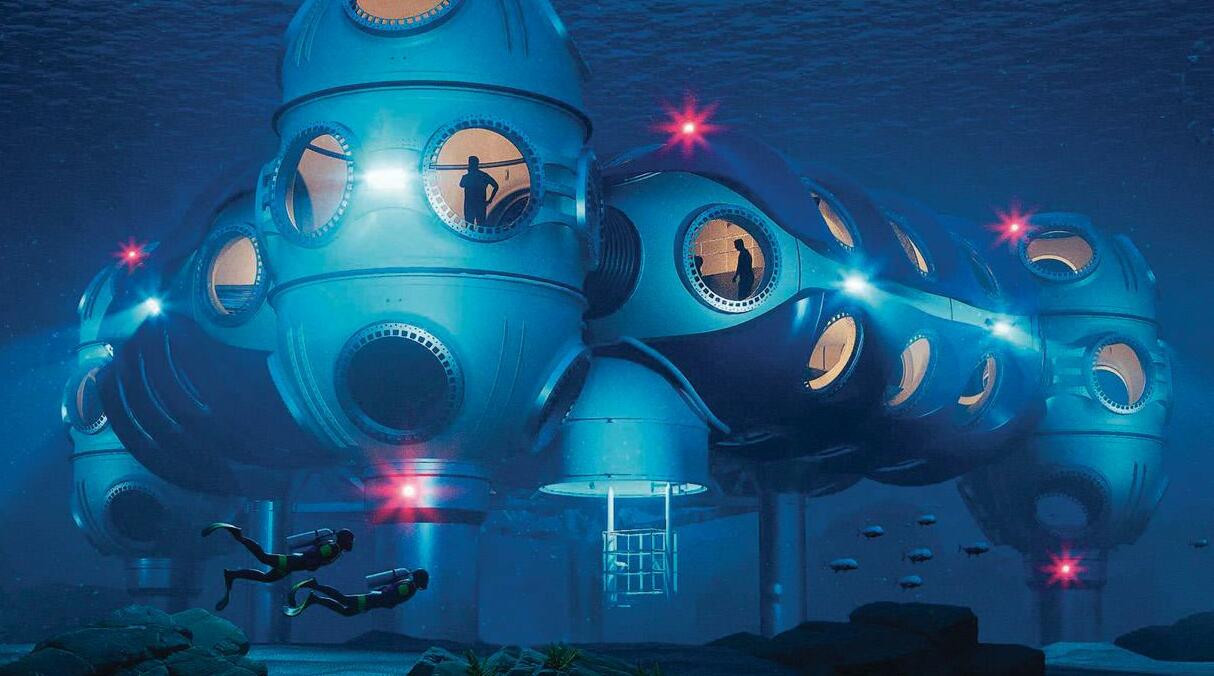This is by no means a new idea. Starting with French oceanographer Jacques Cousteau in the 1960s, people have been building and spending limited amounts of time in underwater habitats for decades. More recently, NASA has been sending people to the Aquarius Reef Base, a research facility on the ocean floor just off the coast of Florida, since 2001. Located 20m (approx 65ft) below the surface, scientists, engineers and prospective astronauts typically spend 7–14 days in the module.
New technology is making the prospect of longer-duration stays underwater possible, though, and British company, Deep, is employing it to develop habitats specifically for that purpose. The tech may be up to the task, but the real question is, are we?
ABOVE THE ATMOSPHERE, BELOW THE SEA
Humans are relatively weak. We don’t do well without oxygen or sunlight, and we’re not big fans of major changes in pressure. In other words, we’re not necessarily the best candidates for life at the bottom of the sea.
That’s not to say we’re incapable of living in hostile environments. Since the year 2000, astronauts have lived for extended periods aboard the International Space Station (ISS), a habitat assembled in conditions that are just as challenging as those we would experience underwater. Various astronauts have clocked up over 300 consecutive days aboard the ISS, but cosmonaut Valeri Polyakov holds the record with the 437 days he spent aboard Russia’s Mir space station between 1994 and 1995.
The thing is, astronauts who’ve spent long periods in space often arrive back on Earth with a variety of health concerns, including reduced bone density and muscle atrophy. But what about the prospects for people looking to live underwater?
The longest case study is Rudiger Koch, a German aerospace engineer who spent 120 days living in a capsule (the top of which is pictured below) submerged 11m (36ft) beneath the surface of the Caribbean Sea between 2024 and 2025. Koch reported no health concerns when he emerged and celebrated with champagne and a cigar.
In second place is Prof Joseph Dituri. He spent 100 days in a lodge at the bottom of a 9m-deep (30ft) lagoon in Florida, in an effort to understand the physical and psychological health effects of underwater life.
Dituri performed daily tests on himself both while submerged and after returning to the surface. And, other than a new-found height, he wasn’t just fine, he was better. He noticed improvements in his sleep, cholesterol levels and inflammation levels. His stem cell count increased, as did his testosterone and performance on cognitive tests. In fact, Dituri emerged with a biological age (a measure of how well your body is ageing) 10 years younger than his chronological one. He was, however, a little over 1cm (about 0.5in) shorter, as the pressurised environment inside the lodge had caused him to shrink.
A STEP TOWARDS LIFE UNDERWATER
With such a small bank of evidence, we don’t have a solid grasp on what the prospects might be for people looki...


